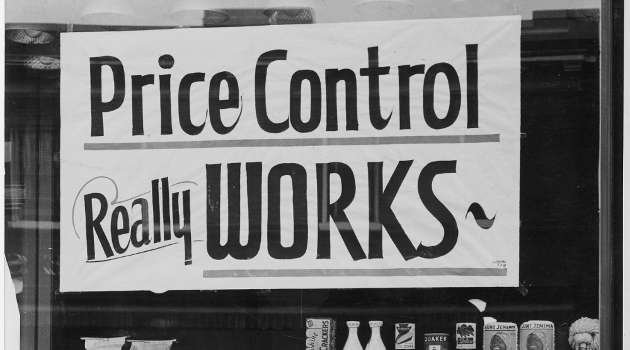This article appeared in the Washington Examiner on August 29, 2016.
Every day seems to bring new tales of human suffering and economic woe from defiantly socialist Venezuela. The once thriving nation put its faith in a backward economic system that relies on central planning and price controls and is now suffering the consequences. Americans learning of the destruction wrought by Hugo Chavez and his hand-picked successor Nicolas Maduro naturally feel pity for the Venezuelan people, but they should also be wary. Many domestic policies illustrate that U.S. politicians put faith in similar economic superstitions.
As the cracks in Venezuela’s socialist system mounted and the growing underclass struggled to afford basic goods, Chavez and Maduro turned to price controls in an attempt to wrestle the economy into compliance, but which instead only added fuel to the fire. The results of that folly are now poignantly clear — empty store shelves and a hungry populace.
For some odd reason, U.S. politicians witnessing this carnage are not jumping to dismantle their own domestic price control regimes. Consider, for example, the controls enacted on debit card payments through an unrelated amendment added by Sen. Dick Durbin to the massive Dodd-Frank financial reform package in 2010.
To be sure, the Durbin Amendment price controls on so-called interchange fees — the charges that merchants pay to card issuing banks to process payments — were passed for different reasons than those in Venezuela. They were a political favor granted upon one business at the expense of another, though the merchants who lobbied for the handout and the politicians who granted it also made claims of consumer benefits that have now been proven false.
Proponents of the controls suggested that consumers would benefits as merchants passed on the savings, but studies have shown they never developed. At the same time, banks sought to recoup the lost revenue by cutting other consumer benefits. The number of free checking accounts has fallen dramatically since passage of Dodd-Frank, from 76 to 38 percent. ATM fees also hit an all-time high in 2013. The result is that more Americans than ever lack access to basic financial services, demonstrating the same economic principles that are leaving Venezuelans without food and other essential goods.
After the limits on interchange fees were placed, some businesses certainly benefited by being able to accept a form of payment that customers want at reduced cost. But the costs don’t only come in the form of reduced revenue to other businesses, or even lost consumer benefits, but also in the inefficiencies introduced into the market. Reduced financial benefits from investments in upgrading payment processing systems mean fewer such investments will be made. This is likely to impact things like fraud prevention and the never ending battle to secure consumer information from data breaches.
Dynamic prices are an essential component to a vibrant economy. They convey information about market conditions that in turn influence both production and consumption, but to do that prices must be free to change to reflect changing conditions. When politicians prevent that from happening they distort the market and introduce inefficiencies. The negative consequences from interchange price controls certainly do not reach anywhere near the level of devastation plaguing Venezuela. But being less bad than a socialist collapse is not a selling point. The Durbin Amendment has harmed American consumers and should be repealed.
———
Image credit: U.S. National Archives and Records Administration | Public Domain.

